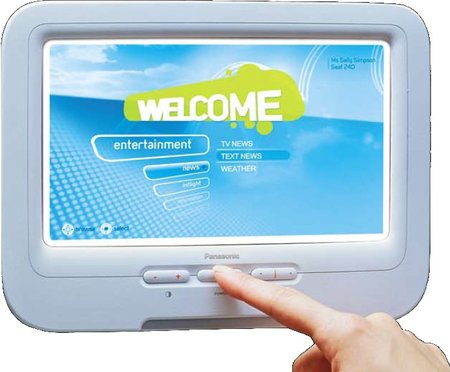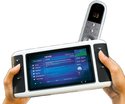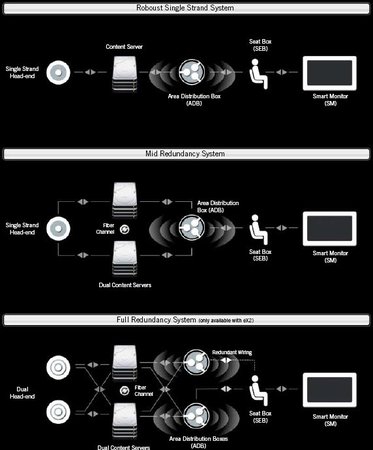Linux powers in-flight entertainment centers
Oct 14, 2008 — by LinuxDevices Staff — from the LinuxDevices Archive — 55 views Australia's top airline carrier has reportedly chosen Linux in-flight entertainment (IFE) systems for four planes. The report says Qantas will deploy Panasonic's new EX2 IFEs, which Panasonic says use fiber channel backbones to deliver movies, news, shopping, and other services to up to 600 passengers.
Australia's top airline carrier has reportedly chosen Linux in-flight entertainment (IFE) systems for four planes. The report says Qantas will deploy Panasonic's new EX2 IFEs, which Panasonic says use fiber channel backbones to deliver movies, news, shopping, and other services to up to 600 passengers.
(Click for larger view of Panasonic EX2, in various screen sizes)
The news comes from Computerworld Australia, which says Qantas will use the EX2 systems in its Airbus A380s, B787 “Dreamline,” and B767-300 planes. Additionally, a B737-800 fleet expected to enter service in March of next year will use the EX2 systems in both business and economy seats, the publication reports.
Panasonic, meanwhile, confirms having shipped an EX2 based IFE system earlier this month to Columbia-based Avianca. It says the carrier took delivery on Oct. 2 of the first of 10 Airbus A330 airplanes slated to use the EX2 IFEs.

Panasonic EX2, with 7-inch screen
(Click to enlarge)
Available in four configurations, with screens ranging in size from seven inches to 23 inches, the Linux-based EX2 IFEs are designed for installation in seatbacks or consoles. Panasonic also offers portable “eXpress Personal Media Player” (XPMP) models boasting claimed battery life up to 10 hours, a wireless option, and recharge stations.


The XPMP handheld model, with remote control and recharge rack
(Click to enlarge)
The EX2 systems come standard with 1GB of local flash storage, from which Linux boots. In the past, MontaVista has supplied its Mobilinux OS to IFE integrators. And, Panasonic uses MontaVista in its Linux mobile phones. However, neither company confirmed the source of Linux used in the EX2 systems prior to publication time.
Along with Linux, the EX2 systems run a customizable mix of off-the-shelf applications. Depending on configuration and options, the systems can offer passengers “access to audio and video on demand (AVOD), iXplor dynamic maps, games, polls, port connector, seat controls, and a variety of applications that includes tools for work office,” Panasonic said. Additional service options appear to include:
- eXtv direct broadcast TV service
- eXphone mobile phone service
- eXconnect broadband Internet service
For carriers wishing to run custom software, Panasonic also offers development and integration services, it says.
The EX2 systems use a fiber channel backbone, along with optional disk arrays, to deliver up to 5Mbps of bandwidth to each user. Depending on deployment architecture, they can support between 350 and 600 passengers, Panasonic's marketing literature suggests. An earlier FX2 IFE from Panasonic parent company Matsushita is said to support up to 190 passengers.

Panasonic EX2 deployment options
(Click to enlarge)
According to Computerworld Australia, Panasonic uses Linux in all of its IFEs. Presumably, this includes its older K-series devices, as well as the new X-series models. More details may be available on Panasonic's IFE website, or in the Computerworld Australia story, here.
This article was originally published on LinuxDevices.com and has been donated to the open source community by QuinStreet Inc. Please visit LinuxToday.com for up-to-date news and articles about Linux and open source.